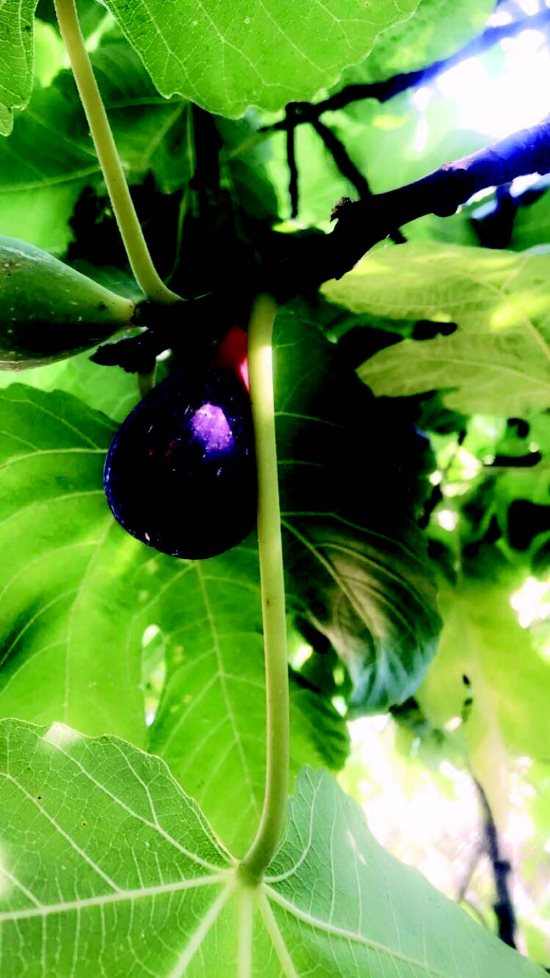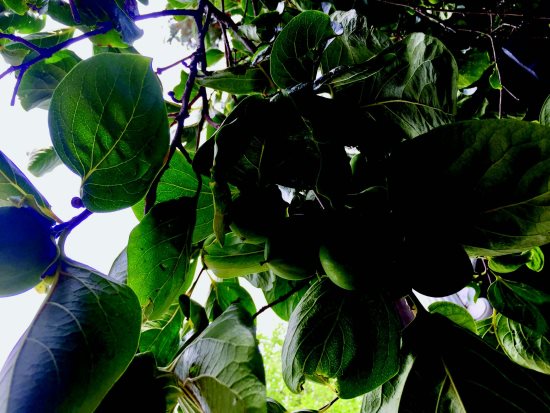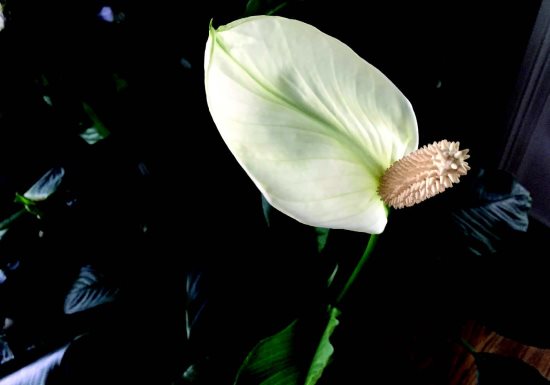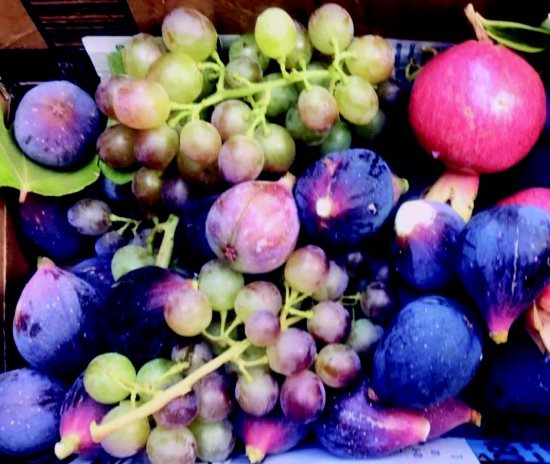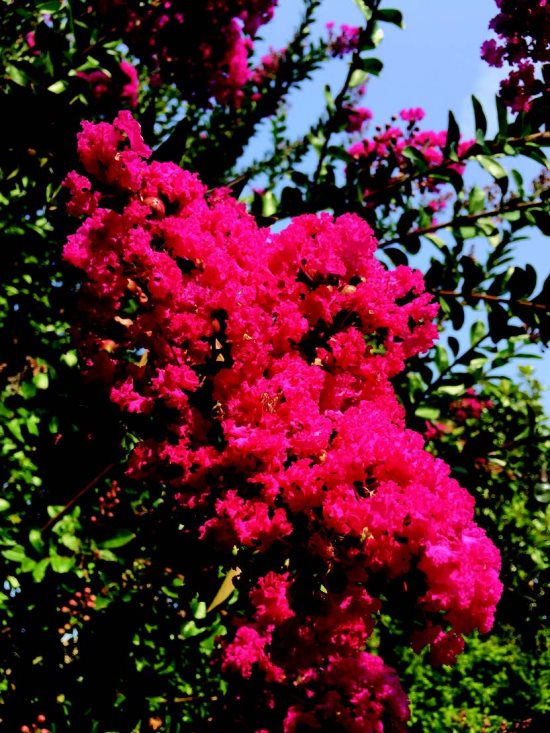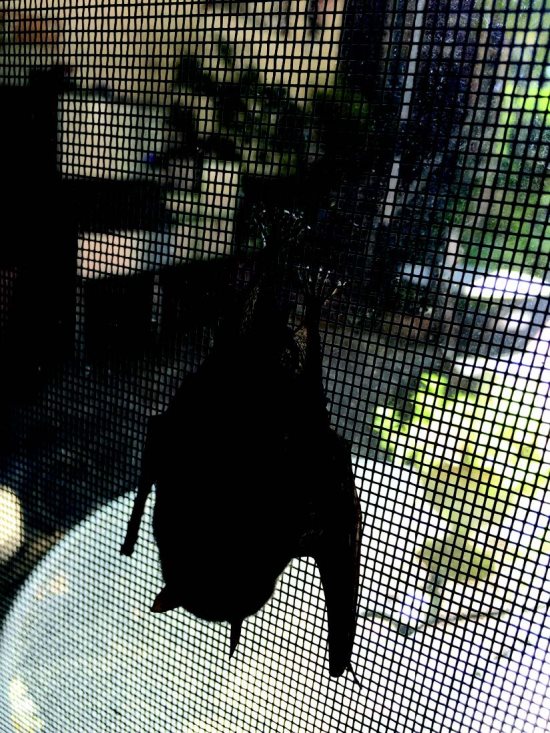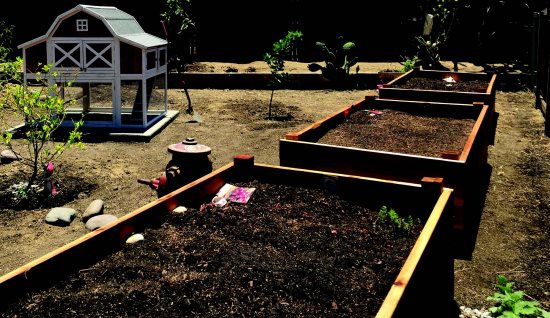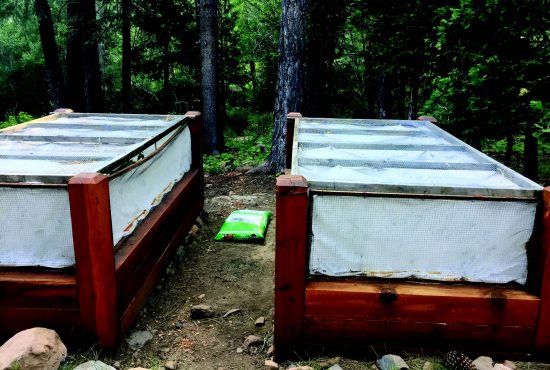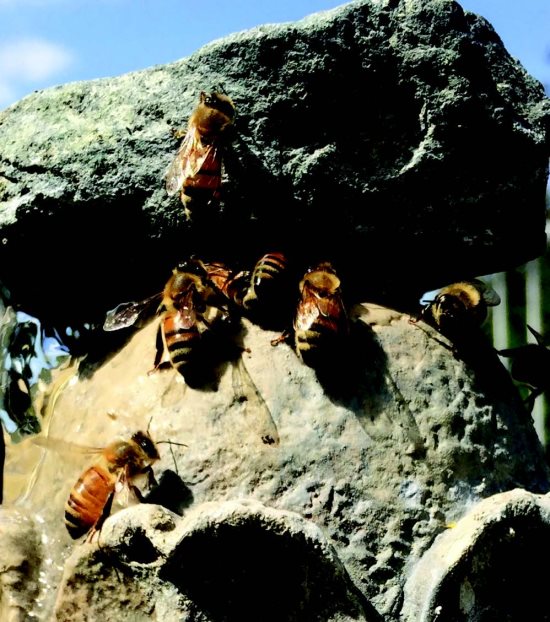 |
|
|
Echinacea is a favorite summer blooming perennial. Photos Cynthia Brian
|
|
|
|
|
|
"Old Gardeners never die, they just spade away!"
 When my dad turned 60 he confided that he didn't have the physical strength that he'd had at 30. Although he was always Superman to me, Dad had to make accommodations to continue working uncompromisingly in the fields on our ranch as he aged.
When my dad turned 60 he confided that he didn't have the physical strength that he'd had at 30. Although he was always Superman to me, Dad had to make accommodations to continue working uncompromisingly in the fields on our ranch as he aged.
 Gardening and farming are bedfellows. Having worked in the dirt since I toddled, I have always felt confident in my gardening vigor whether it was lifting heavy rocks, pulling barbed wire, cutting limbs, digging holes, or carrying sacks of fertilizer. Over the decades, I have learned to curb my enthusiasm and ask for assistance when a task is beyond my physical prowess.
Gardening and farming are bedfellows. Having worked in the dirt since I toddled, I have always felt confident in my gardening vigor whether it was lifting heavy rocks, pulling barbed wire, cutting limbs, digging holes, or carrying sacks of fertilizer. Over the decades, I have learned to curb my enthusiasm and ask for assistance when a task is beyond my physical prowess.
 Gardening offers exercise for the body, mind and spirit. It is an outdoor activity that anybody can enjoy from birth until death. By working in the garden, our bodies and bones become stronger and more flexible allowing for greater mobility. Gardening reduces stress, clears our minds, births creativity, and staves off depression. The bonus is we get to enjoy beautiful landscapes, gorgeous flowers, and fresh fruits, vegetables and herbs.
Gardening offers exercise for the body, mind and spirit. It is an outdoor activity that anybody can enjoy from birth until death. By working in the garden, our bodies and bones become stronger and more flexible allowing for greater mobility. Gardening reduces stress, clears our minds, births creativity, and staves off depression. The bonus is we get to enjoy beautiful landscapes, gorgeous flowers, and fresh fruits, vegetables and herbs.
 Here are a few tips I've gleaned that have been helpful to increase my gardening enjoyment while taking precautions for health and safety.
Here are a few tips I've gleaned that have been helpful to increase my gardening enjoyment while taking precautions for health and safety.
 Health and safety tips for all ages
Health and safety tips for all ages
 1. Always apply sunscreen before going outdoors.
1. Always apply sunscreen before going outdoors.
 2. Wear gloves, a hat and boots with good treads.
2. Wear gloves, a hat and boots with good treads.
 3. Although my preferred summer gardening wardrobe (and that of my family members) is wearing a bathing suit or shorts with my boots, it's best to pull on trousers and a long shirt when pruning roses, blackberries, or doing any type of spraying.
3. Although my preferred summer gardening wardrobe (and that of my family members) is wearing a bathing suit or shorts with my boots, it's best to pull on trousers and a long shirt when pruning roses, blackberries, or doing any type of spraying.
 4. Use insect repellent or wear a scarf and socks by Insect Shield(r) to keep the ticks, mosquitoes, and other pests from biting.
4. Use insect repellent or wear a scarf and socks by Insect Shield(r) to keep the ticks, mosquitoes, and other pests from biting.
 5. Get a tetanus shot every 10 years.
5. Get a tetanus shot every 10 years.
 6. Seek medical attention immediately if allergic to bee or yellow jacket stings.
6. Seek medical attention immediately if allergic to bee or yellow jacket stings.
 7. Respect physical limits. I push myself forward, but more gently.
7. Respect physical limits. I push myself forward, but more gently.
 8. Minimize the BLT activities: bending, lifting, and twisting. I now do my weeding scooting along the ground. I lift only an amount that doesn't hurt my back and I avoid twisting as much as possible. (Sorry Chubby Checker!)
8. Minimize the BLT activities: bending, lifting, and twisting. I now do my weeding scooting along the ground. I lift only an amount that doesn't hurt my back and I avoid twisting as much as possible. (Sorry Chubby Checker!)
 9. Install raised beds for vegetables to decrease the "B"... bending.
9. Install raised beds for vegetables to decrease the "B"... bending.
 10. Use caution when climbing on high ladders.
10. Use caution when climbing on high ladders.
 11. Drink lots of water. It's so easy to get dehydrated while gardening especially when it is warm. My mother taught me that lesson.
11. Drink lots of water. It's so easy to get dehydrated while gardening especially when it is warm. My mother taught me that lesson.
 12. Keep tools sharpened, cleaned and organized. Always use the proper tool for the job at hand.
12. Keep tools sharpened, cleaned and organized. Always use the proper tool for the job at hand.
 13. Repair or replace immediately anything that could be hazardous to the gardening experience. I walk my perimeter daily adjusting rocks, stepping stones, picking up fallen branches, or debris that could lead to a fall or worse.
13. Repair or replace immediately anything that could be hazardous to the gardening experience. I walk my perimeter daily adjusting rocks, stepping stones, picking up fallen branches, or debris that could lead to a fall or worse.
 14. Hire experts when needed.
14. Hire experts when needed.
 15. Bathe and wash clothes after every garden work out.
15. Bathe and wash clothes after every garden work out.
 16. Spend at least 20 minutes daily enjoying the beauty and the bounty. My morning ritual is to express gratitude and awe for my garden every morning as I meander through the landscape before going to work. In the evening I appreciate being able to harvest fresh vegetables, fruits, and herbs for our supper.
16. Spend at least 20 minutes daily enjoying the beauty and the bounty. My morning ritual is to express gratitude and awe for my garden every morning as I meander through the landscape before going to work. In the evening I appreciate being able to harvest fresh vegetables, fruits, and herbs for our supper.
 17. Use all of your senses. Listen, really listen to the sounds of nature. Pay attention to the birds, bees, butterflies, hummingbirds and insects. Embrace the sounds of the breeze whistling through the trees, breathe in the sweet fragrance of the flowers, and taste the peppery flavor of the nasturtium. Feel the velvety texture of lamb's ear and avoid the prickles of the cactus. Look around you and truly see the unique kaleidoscope of flora and fauna.
17. Use all of your senses. Listen, really listen to the sounds of nature. Pay attention to the birds, bees, butterflies, hummingbirds and insects. Embrace the sounds of the breeze whistling through the trees, breathe in the sweet fragrance of the flowers, and taste the peppery flavor of the nasturtium. Feel the velvety texture of lamb's ear and avoid the prickles of the cactus. Look around you and truly see the unique kaleidoscope of flora and fauna.
 18. Make gardening a family affair. Encourage your spouse, partner, children and grandchildren to dig in the dirt with you.
18. Make gardening a family affair. Encourage your spouse, partner, children and grandchildren to dig in the dirt with you.

 Practicing the art of gardening is an activity that reaps benefits for our physical fitness and spiritual wellbeing. It is a hobby with measureable perks. Be alert and consider safety first. With joy and abandonment, we will be able to frolic in our garden playgrounds for a lifetime until we just spade away!
Practicing the art of gardening is an activity that reaps benefits for our physical fitness and spiritual wellbeing. It is a hobby with measureable perks. Be alert and consider safety first. With joy and abandonment, we will be able to frolic in our garden playgrounds for a lifetime until we just spade away!
 Cynthia Brian's Monthly Tips for September
Cynthia Brian's Monthly Tips for September
 TREAT balconies, rooftops, and porches like outdoor rooms. Define the space, add robust colors, comfortable furnishings, and an element of shade.
TREAT balconies, rooftops, and porches like outdoor rooms. Define the space, add robust colors, comfortable furnishings, and an element of shade.
 ELIMINATE sugar and artificial sweeteners from your diet. Plant stevia, a natural sweet herb that is a healthy sugar substitute.
ELIMINATE sugar and artificial sweeteners from your diet. Plant stevia, a natural sweet herb that is a healthy sugar substitute.
 MAINTAIN optimum health by adding superstar foods to your vegetable garden including sweet potatoes, broccoli, watermelon, butternut squash, and numerous leafy greens including mustard, kale, collards, spinach and Swiss chard.
MAINTAIN optimum health by adding superstar foods to your vegetable garden including sweet potatoes, broccoli, watermelon, butternut squash, and numerous leafy greens including mustard, kale, collards, spinach and Swiss chard.
 DIVIDE overgrown perennials beds after the flowers have finished blooming. Plant the divisions in other areas of your yard or share with friends or a garden club.
DIVIDE overgrown perennials beds after the flowers have finished blooming. Plant the divisions in other areas of your yard or share with friends or a garden club.
 FERTILIZE roses, azaleas, rhododendrons, fuchsias and camellias.
FERTILIZE roses, azaleas, rhododendrons, fuchsias and camellias.
 CUT bouquets of Naked Ladies and bougainvillea to use in flower arrangements. Flowers last about a week to 10 days.
CUT bouquets of Naked Ladies and bougainvillea to use in flower arrangements. Flowers last about a week to 10 days.
 SOAK the heads of hydrangeas in a bucket of water after cutting. Hydrangeas drink from the top. Spray bouquets with water once a day to keep the hydrangea flowers fresh looking.
SOAK the heads of hydrangeas in a bucket of water after cutting. Hydrangeas drink from the top. Spray bouquets with water once a day to keep the hydrangea flowers fresh looking.
 HARVEST apples, grapes, figs, and Asian Pears as they ripen.
HARVEST apples, grapes, figs, and Asian Pears as they ripen.
 BUY bulbs for spring planting. Tulips, crocus and hyacinth will need to be refrigerated for six weeks before planting.
BUY bulbs for spring planting. Tulips, crocus and hyacinth will need to be refrigerated for six weeks before planting.
 DETER squirrels and birds from devouring your green persimmons by netting the tree.
DETER squirrels and birds from devouring your green persimmons by netting the tree.
 VISIT me and other contributors to my eighth book, "Be the Star You Are! Millennials to Boomers Celebrating the Gifts of Positive Voices in a Changing Digital World" at the Pear and Wine Festival on Saturday, Sept. 22 from 11a.m. to 3 p.m. Get your books autographed with sales benefitting literacy outreach projects. Information at http://www.CynthiaBrian.com/books. Thank you to Lamorinda Weekly for sponsoring.
VISIT me and other contributors to my eighth book, "Be the Star You Are! Millennials to Boomers Celebrating the Gifts of Positive Voices in a Changing Digital World" at the Pear and Wine Festival on Saturday, Sept. 22 from 11a.m. to 3 p.m. Get your books autographed with sales benefitting literacy outreach projects. Information at http://www.CynthiaBrian.com/books. Thank you to Lamorinda Weekly for sponsoring.
 BRING plants into your office. Exposure to living greenery has a calming effect and helps us be more productive. Many plants, such as the Peace Lily, also called the Sail Plant, emit antiviral, immune-boosting chemicals that clean the air and promote health.
BRING plants into your office. Exposure to living greenery has a calming effect and helps us be more productive. Many plants, such as the Peace Lily, also called the Sail Plant, emit antiviral, immune-boosting chemicals that clean the air and promote health.
 GROW echinacea as a beautiful hardy perennial as an ornamental or for its medicinal qualities that are found in its root. Test the quality of the root by chewing a small piece. If your tongue tingles, the root can be used for making teas, tinctures, and toners.
GROW echinacea as a beautiful hardy perennial as an ornamental or for its medicinal qualities that are found in its root. Test the quality of the root by chewing a small piece. If your tongue tingles, the root can be used for making teas, tinctures, and toners.
 ENLIST the assistance of a pest control professional if you find bats getting into your attic, garage or other space. Although they don't usually attack humans, they can carry rabies. On the positive side, bats are garden guardians and consume copious amounts of damaging insects.
ENLIST the assistance of a pest control professional if you find bats getting into your attic, garage or other space. Although they don't usually attack humans, they can carry rabies. On the positive side, bats are garden guardians and consume copious amounts of damaging insects.
 RELISH the spectacular show of colorful crape myrtles this month as they grace driveways, gardens and town centers.
RELISH the spectacular show of colorful crape myrtles this month as they grace driveways, gardens and town centers.

 Savor the final days of summer. Autumn clean up is coming soon. Sharpen your spade and spade away!
Savor the final days of summer. Autumn clean up is coming soon. Sharpen your spade and spade away!

 Happy Gardening. Happy Growing.
Happy Gardening. Happy Growing.
 Cynthia Brian
Cynthia Brian


|

